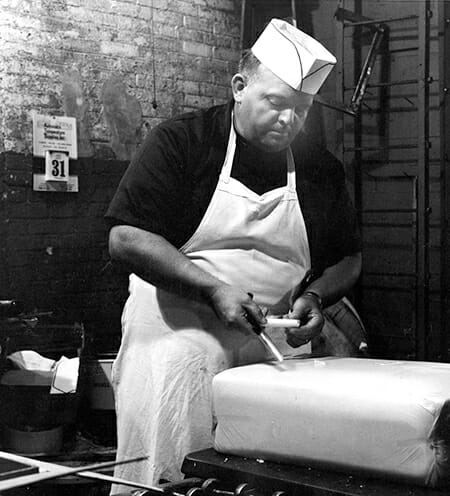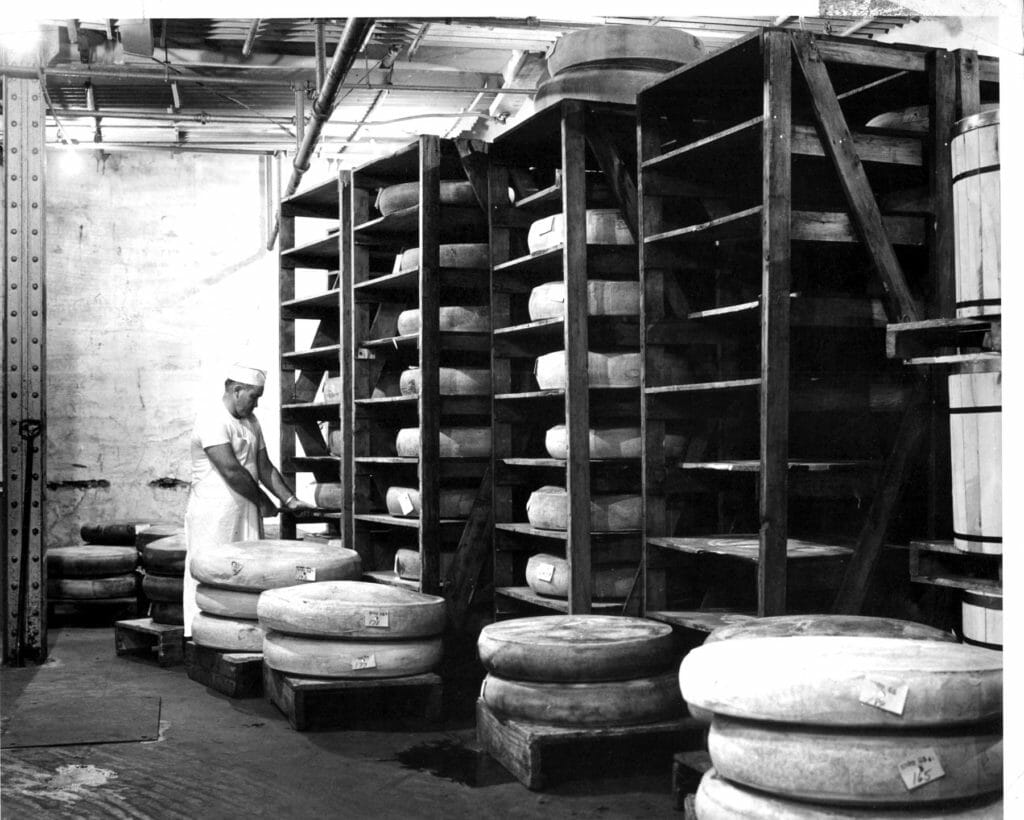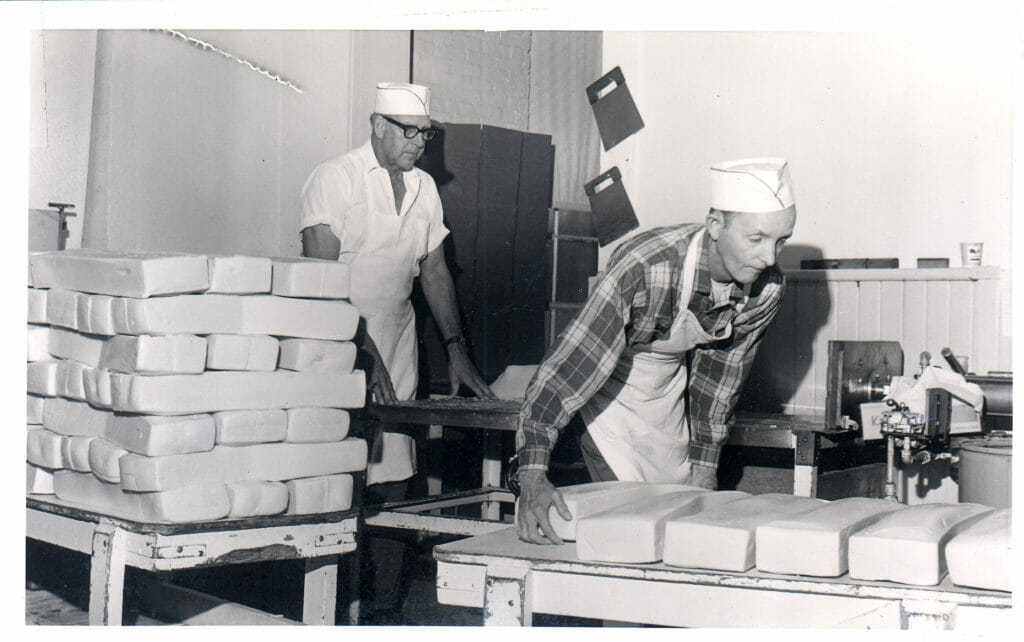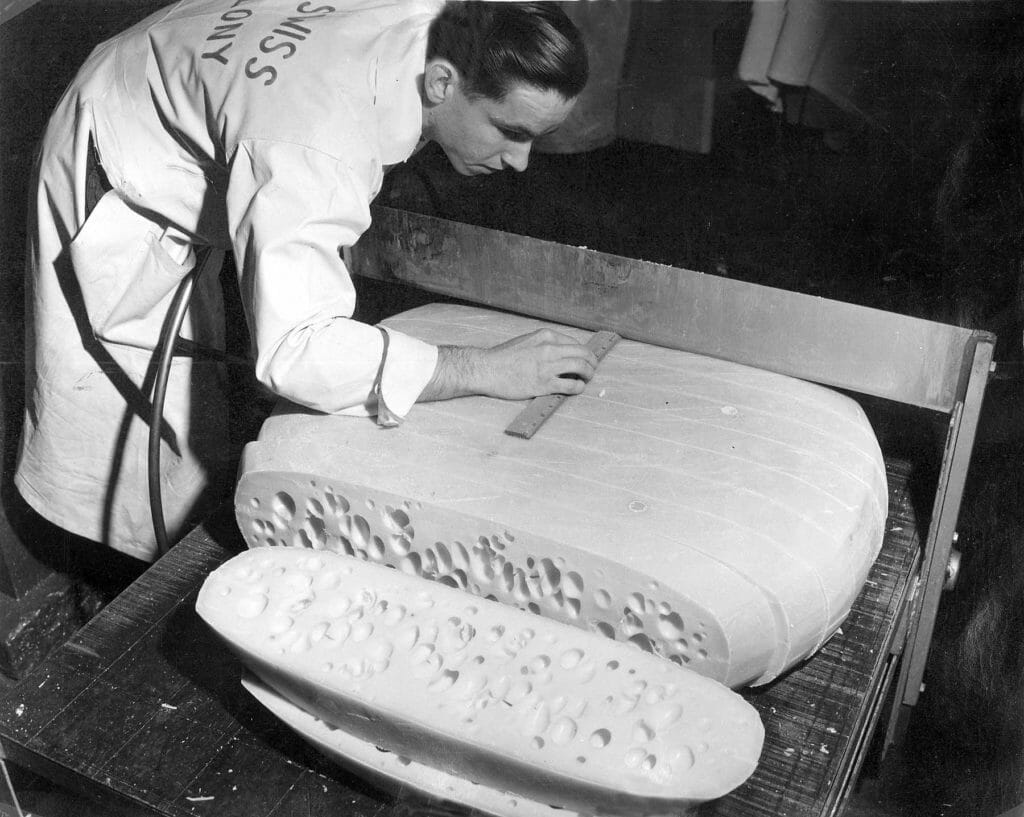Legend of the Baby Swiss Cheese
After immigrating to the United States, Swiss settlers arrived in Green County, Wisconsin, in the 1840s. With its rolling hills and lush valleys, the area reminded them of their homeland. More importantly, the microclimate and limestone-filtered water were perfect for raising cows that would produce the superior milk needed to make their prized 200-pound wheels of Emmenthal (aka Emmental cheese or traditional Swiss).
What Is Baby Swiss Cheese?
Over the years, the Swiss cheesemakers experimented with part-skim and whole milk, and formed the cheeses into smaller wheels that would require less ripening time and could be sold earlier. This younger cheese is Baby Swiss. It offers a full, nutty, yet mild, mellow taste that is sure to please discerning cheese connoisseurs.
Baby Swiss vs. Swiss
Both regular Swiss cheese and Baby Swiss cheese have a pale yellow color, nutty flavor, and smooth, creamy texture, although longer-aged Emmenthalers become much harder. The main difference between Swiss cheese and Baby Swiss cheese is that, due to its shorter ripening time, Baby Swiss has smaller “eyes” than the huge wheels of Emmenthaler. A very similar type called Lacy Swiss gets its name from its extremely small holes. Also, while Emmenthaler is made with part-skim milk, Baby Swiss is often made with whole milk, giving it a richer, buttery character.
Wisconsin’s Original Cheese Company
Monroe, Wisconsin, native Ray Kubly recognized how special Baby Swiss is. In 1926, he helped introduce that superbly sweet, nutty flavor to the entire nation, making The Swiss Colony the original Wisconsin cheese gifts company.
Today, Baby Swiss continues to be made by a number of Master Cheesemakers in Green County, Wisconsin, as well as in other areas—mostly in the Amish-settled areas of Pennsylvania and Ohio—and is one of our most popular products. When you taste the difference between Baby Swiss and Swiss, this sweeter, gentler cousin of the Old World masterpieces may just be the best Swiss cheese you’ve ever had.
Does Swiss Cheese Need to Be Refrigerated?
Yes, it does! All Swiss Colony cheese (including Baby Swiss and Regular Swiss) is natural cheese, not the processed kind that can sit on a supermarket shelf. Refrigerate your cheese as soon as you get it. Take it out an hour before serving to let it come to room temperature for optimal flavor; when you’re done slicing and serving, put the rest back in the refrigerator until next time.



